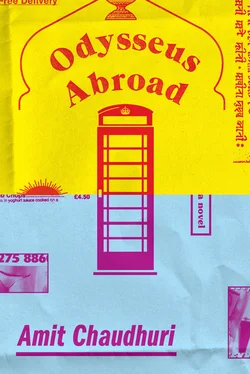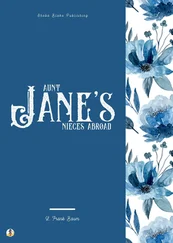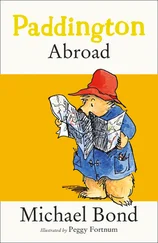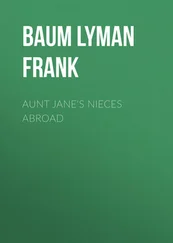Over the three weeks of their stay, his parents used the bedsit as a watering hole, though it was more hole now than watering hole. Between the guest house with its unfriendly breakfasts and the comforts of the Trust House Forte Hotel (to which they moved after ten days), with electric kettle and tea bags, this was a place to come back to. Late one morning, Ananda and Khuku arrived at the house to find a semi-familiar smell wafting down the stairs. His uncle was cooking; when they walked in, he lowered the flame and let the gravy simmer. He’d produced a light, turmeric-and-spice-based curry of marrow and shrimps. Ananda had never had this vegetable before, but was won over by the curry’s delicacy, the fortuitous neighbourliness in it of shrimp and marrow. It was served from one of those suspect saucepans. His mother resumed cooking too — dressed in a red printed sari, serving up coder jhaal . Thick white rectangles of cod in a gravy of chilli powder, with a spattering of turmeric, slivers of onion and fingernail shavings of garlic, and specks of kalonji that she’d brought from India. Amassed in a small frying pan.
He was briefly given reign of Belsize Village. At home, his mother never let him out of sight without a servant, but now she sent him forth on an errand: to buy a carton of milk and some salt. The village was really a square lined with shops and restaurants (including an Indian one called Beer and Curry), which, in Ananda’s mind’s eye, swelled, as he turned left from Belsize Avenue, like the letter omega, Ω, with Belsize Avenue forming the baselines. The shop was at the upper end of the horseshoe.
Once inside, the chocolate mousse in the freezer caught his fancy. He took it home along with the salt and milk. In the bedsit, Ananda, in his impatience, prised open the lid holding the container upside down, letting its contents fall intact on to the rug — which was, despite Ananda’s father’s efforts, dark with dust. The dessert was irretrievable.
—
Given this bedsit was where Ananda’s parents had lived prior to his birth, the room had the air of belonging to a story. The fact that he’d heard the story several times didn’t make the bedsit better-known to him. For it was very real, and difficult to make your way around in without colliding into something. Also, the neglect it had absorbed in the twelve years since his parents had gone to India gave it a touch of the unexpectedness associated with the mamar baadi , the “maternal uncle’s house,” a place traditionally lacking in restrictions for the nephew.
By the time of that holiday in 1973, Ananda’s uncle’s world-conquering glory had dimmed; he was bored of it too. Radhesh had proved he was capable of great conventional professional success; but it looked like he wasn’t interested in great conventional professional success. What he was interested in was company and family: as if responding to this in a corrective way, he lived alone and in the proximity of people who until recently were strangers. On the first floor, he had two neighbours: Abbas, and Pinku Chaudhury, a phlegmatic East Bengali who worked for British Rail and who possessed an idiot box. Radhesh made infrequent visits to Pinku Chaudhury’s bedsit to watch wildlife programmes, to admire, over an hour, the tiger’s stride and gathering pace, and to bemoan the gazelle’s spry but fatal ingenuousness. As if in reciprocity, Pinku Chaudhury’s cat habitually invaded Radhesh’s bedsit, pushing its way in through the heavy door, which was often kept ajar, and jumping on to the armchair: an indolent feline with a thick brandy-cream coat and a lingering air of entitlement. He was called Vodka, and Ananda would find him politely prowling the bedsit that summer. He saw him again in 1979, but not after. When Council work began on the first floor, Pinku Chaudhury moved to Chalk Farm. Only Shah and Ananda’s uncle relocated to new rooms in the basement.
—
Rangamama would encourage Ananda to sing as they went for walks that August. He’d contribute snatches in his baritone. Cliff Richard was on his uncle’s mind—“He has a lovely voice,” he said, and, appropriately for the season, sang the opening lines of “Summer Holiday” as all four of them proceeded on the pavement. Satish had bought his son Best of the Bee Gees , with its mustard-yellow cover and figures in Mount Rushmore — like array. Ananda already knew “Holiday,” and he approximated Robin Gibb’s plaintive, melodious, nasal cry. His uncle answered with “Bachelor Boy,” humming, “Happy to be a bachelor boy until my dying day,” without Ananda sensing the irony that made his uncle’s voice float unsteadily before going silent. Nor did he get the irony when his uncle ebulliently urged him to do a repeat of “I’m going to marry in the morning, ding dong the bells will chime” as they walked up Belsize Avenue to Haverstock Hill — Ananda’s falsetto standing in for the scoundrel Dolittle’s guttural announcement.
—
That was the happiest he’d seen his uncle — though Rangamama had told Ananda that he’d never known happiness unmixed with disappointment. By then Rangamama was already developing his most abiding obsession — the nature of the afterlife; how and why souls come to the world, and what they do when they leave. Its main sign were the several volumes he had of the Pan Book of Horror Stories series. The tales in these books underlined the fact that life played savage tricks on you, that there were people out there who were suffering for no reason, and others whose sole function was to make people suffer. This, according to the Pan Book of Horror Stories , was what existence was, before the blank panacea of death came, and it was a world view that was then — and even today — imbibed nightly by Ananda’s uncle in his bed.
He began to spend more time at Philipp Bros than at home. He did other people’s work: specifically that of two juniors in his department, Paul Middleton and Freddy Gamble. His heart went out to Freddy Gamble, a timorous man, thin as his tie, who failed miserably at what he did, was newly married, and on the verge of losing his job. When Ananda and his parents saw Radhesh in 1979, Freddy Gamble was on his lips, like a backward but beloved child. In those years, Ananda’s uncle returned to Belsize Park well after midnight. It was during these depressed and solitary journeys that he gradually became aware of ghosts and spirits. Once, stepping into the lift at 3 a.m. after hours of work, he felt a draught within. But where could the draught come from? He knew from his reading that a momentary drop in temperature meant a spirit was near. When it happened another night, he asked an employee in the building about it. He learned from him that there had been a death in the building on the fourth floor, seven years ago. At 2 a.m. one night, making his way back from the office (he’d walked from Moorgate to Swiss Cottage), he noticed, climbing the incline between Finchley Road and Belsize Avenue, a man approaching from the distance. Which sane person would be out at this hour? As the strange man came closer, Radhesh, terrified, said: “Would you like a light?” “Believe you me,” said his uncle to Ananda, “that man was not alive. His face was a death-mask. He had no idea of my existence. And do you know what happened next?” Ananda knew it well, since his uncle repeated the story every week, but his uncle wasn’t waiting for his response. “I walked a bit further, thinking, Thank you, dear God, I live to see another day! — when (I was curious) I glanced over my shoulder. Do you know what I saw? The man had stopped and was looking straight at me . Yes, I should have run (though what use is flight from such a being?) but was paralysed and couldn’t move. The man began to make large strides towards me. I watched him, agog. Certain death , I thought…When he was face to face with me he turned sharply to his right and stared at a rusty stain on the wall. He stood like that for half a minute and then very decisively pressed his handkerchief against the stain. Then he turned around as if it were no longer of any interest to him and went back in the direction he was earlier headed.” “Finchley Road?” “Finchley Road — or maybe Swiss Cottage.” It was a terribly boring ghost story, made enervating by repeated rhapsodic recitations and also the fact that there was no proven ghost in it. But for his uncle it was his one episode involving what he took to be a given: the posthumous and the undead. The man was dead, the man was dead, the man was dead. It had happened, it had happened, it had happened — once. For Ananda, the tale embodied his uncle’s final years at Philipp Bros: a time alternating between self-inflicted assignments undertaken on behalf of Freddy Gamble and Paul Middleton, and late-night or early-morning visions and homecomings. He was imprisoned by his job, and these three — Middleton, Gamble, and his uncle — were reduced to a kind of insentience: achieving not very much over six years, only his uncle aware how time was passing to no end. Then Mrs. Thatcher took charge, the economy improved, and all three were made redundant. For his uncle, at least, the spell was lifted, and he was himself again.
Читать дальше











